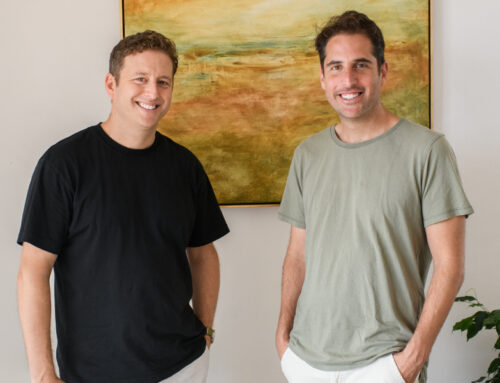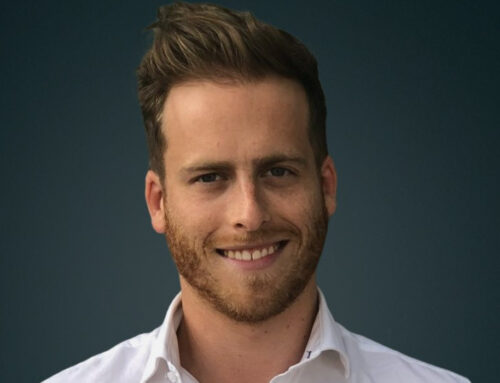Guest piece by our wonderful member of the Albert Impact Ventures Investment Committee Chair and Alberts board member Andrew Rothery, Chair of Cicada Innovations.
That heading borrows, unashamedly, from the famous campaign aide memoir which Bill Clinton’s election strategist, James Carville, crafted for Clinton in 1992. (Legend has it that Carville placed a Post-it note bearing that message on all of Clinton’s campaign lecterns.) Over thirty years of investing in private markets focussing, initially, on later stage private equity and, latterly, on early stage investing has led me to the realisation that the most important ingredient in the recipe for a successful private market investment is the leadership team. In my early career in private markets, I expressed this realisation in the form of the mantra “management, management, management”. In recent years that has morphed into “founders, founders, founders”. It’s the leaders, stupid.
When I was involved in later stage investing, the flip side of that message was the realisation that I only ever lost sleep when I felt that a portfolio company was not being run by the best people the company could afford. If the company did have the best people it could afford in the top slots on the org chart, I slept well knowing that there was little more that I needed to do to ensure the success of the investment in that company.
Today, my personal focus when considering an early stage investment is the quality of the founders. Let me pause here and say that, while I’ve seen a few great start-ups that have been founded by an individual effectively working alone in the early stages of the life of the business, I’m no great fan of solo founders. I much prefer to see a founder group comprising two or three people. We all need shoulders to share the load and to cry on. It’s also incredibly energizing to participate with others in the celebrations around success.
So what, specifically, am I looking for in a founder that would lead me to back them?
Without rank-ordering them, here are the top character traits that I want to see in a founder:
- passion;
- intelligence;
- resilience;
- optimism;
- vulnerability.
Passion, intelligence, resilience and optimism seem to appear on most of the lists of desirable qualities of founders which I’ve come across. They don’t need much, if any explanation. And most of the great founders I have come across have these attributes in industrial quantities.
It’s the fifth character trait which I don’t always see on those lists, perhaps because some of the people compiling those lists see it as inconsistent with the other four. I don’t think it is.
To be honest, I have come to value vulnerability in a founder enormously. What do I mean by vulnerability in this situation? I think of vulnerability as a preparedness to admit that you’re not perfect, that you don’t have all the answers, that you sometimes need help and that you’re prepared to be coached and learn from both your successes and mistakes. I also value vulnerability very much in leaders of established businesses. I think the boards and major shareholders of all companies – whether the company is a start-up, a scale up or well established – should work hard to let their CEOs and founders know that vulnerability is a valued character trait. You want the leader of the business to be very comfortable, whether in the boardroom or on a Zoom call with a major shareholder, to say, “help, I’m stuck and I don’t what to do”. You do not want a CEO or founder to think that saying something like that is a sign of weakness or that they’re not up to the job. That mindset is a recipe for trouble. Specifically, it’s a mindset that often leads to problems being understated or, worse, hidden from boards and shareholders.
In my experience, vulnerable leaders are usually eminently coachable leaders. They listen, take advice and act on that advice when it’s appropriate to do so.
They also tend to be the leaders who realise when they are approaching their ‘use by date’ and who are willing to hand the reins of the business to a successor with a different skill set, a skill set which the business needs now or will need soon. Those reins don’t need to be prised out of the hands of such leaders. Leaders who are prepared to be vulnerable are the leaders whose egos don’t get in the way of the business.
In the early days of my private market investing career, it was the manager who did their best and who was prepared to be vulnerable as evidenced by their willingness to ask for help and to step aside when the time was right, whom we often ‘recycled’ into another role in another portfolio company. These were the managers whom we trusted to do the right thing by all their constituents. It’s the founders who display similar character traits who come to be tagged “serial entrepreneurs” as familiar investors back them repeatedly.
Let me finish this note by reiterating that the board and key shareholders have a critical role to play in inculcating vulnerability in top managers and founders. They need to deliver, from the start, the message that it’s perfectly OK for a business leader not to have all the answers and that the board and shareholders are there to help. Not surprisingly, it’s the leaders who are prepared to be vulnerable with their boards and shareholders who usually find that their boards and shareholders are useful resources, not obstacles on the path to success.
It really is all about the leaders, stupid.







